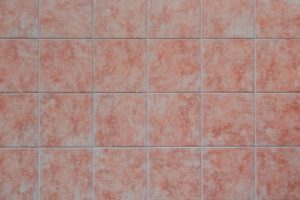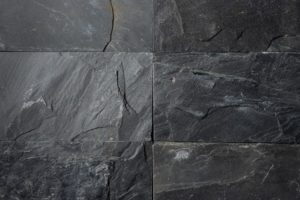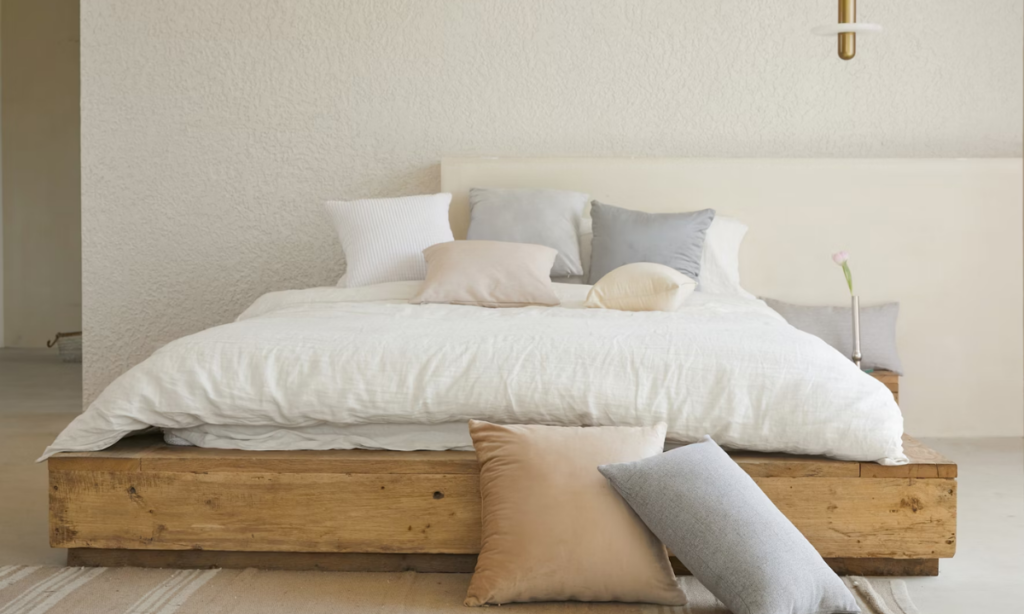The usage of tiles in houses has been around even before the 1900s and due to its visual appeal and properties, it has remained in style up to this day. Of course, the limited selection of titles has evolved with time.
Now, there are a plethora of tiling choices you can choose from, which range from the typically known ceramic tiles to the posh marble tiles! Tiles are mainly used for two purposes in living and commercial spaces: flooring and wall designs.
In the following paragraphs, we will be walking with you through the different types of tiles you can choose from in Singapore. Aspects such as their pricing, their characteristics, and their pros and cons will be discussed! So fret not if you are still on the fence about what to choose, we will offer help as much as possible to make your design projects simpler!
Cost of Various Tiles In Singapore
Costs | Commonly Available Sizes | Thickness | |
Ceramic Tile | $0.5 to $35 per square feet (psf) | 60cm x 60cm, 60cm x 120cm, 90cm x 90cm | 3mm to 10mm |
Porcelain Tile | Glazed: $3 to $10 psf Unglazed/ Homogenous: $2 to $4 psf | 60cm x 60cm, 60cm x 120cm, 90cm x 90cm | 3mm to 10mm
|
Cement Tile | $4.50 and above psf | 30cm x 60cm, 60cm x 60cm, 90cm x 90cm | 3mm to 10mm |
Granite Tile | Varies | commonly in 60cm x 60cm | 5mm to 10mm |
Marble Tile | $8 to $22 psf | 30cm x 30cm, 60cm x 60cm | 10mm+ |
Slate Tile | $2 to $15 | Varies | 3mm to 10mm |
Terrazzo Tile | Varies | 30cm x 30cm, 60cm x 60cm, 80cm x 60cm | 15mm+ |
Mosaic Tile | Differs based on material and design of tiles | Based on the shape and pattern of tiles | Dependent on the pattern of tiles |
Peranakan Tile | Varies | 20cm x 20cm, 60cm x 60cm, 80cm x 80cm, 100cm x 100cm | 3mm to 10mm |
Glass Tile | Varies | Varies | Varies |
Tiling Cost Calculator in Singapore, 2024
Here is a tiling cost calculator for you to estimate the cost of your tiling project.
(This calculator is currently in beta phase, all prices are estimated.)
Types of Tiling Materials
Choosing the right material for your floor or wall is vital as it is most likely to be permanently fixed in your home spaces. Homees provide a list of popular tile designs in Singapore that could be suitable for your home.
Homees provide a list of popular tile designs in Singapore which could be suitable for your home.
Ceramic Tile

- Cost: $0.5 to $35 per square feet (psf)
- Commonly Available Sizes: 60cm x 60cm, 60cm x 120cm, 90cm x 90cm
- Thickness: 3mm to 10mm
Ceramic tiles are made up of sand and clay and they can be used as flooring or even for your wall designs! There are two types of ceramic tiling, glazed and unglazed. Glazed tiles, usually have a coating that varies depending on the type of look you are going for.
This coat is useful in preventing the staining of the tiles and they are usually used for walls. Usually, the tiles under part are of a reddish or whitish colour. If you are looking at the unglazed version, fret not, is still durable and is usually used for outdoor areas. A thinset (type of adhesive) is used to secure the tiles to the floor or wall. Generally, tiles used for walls are relatively thinner as compared to those used for the floor.
Pros of Ceramic Tiles | Cons of Ceramic Tiles |
There are various styling options for ceramic tiles due to the plethora of colors, designs, and sizes they come in | Due to its hardness, this may cause discomfort when people step on them. Unfortunately, unlike vinyl flooring or laminate flooring, padding does not help ‘soften’ your footsteps |
For the glazed versions, they are great in preventing staining and scratches from being obvious. Both versions are extremely clean as well and simple sweeping and mopping will suffice | This tile is prone to getting cold in night or in cold weather, hence this may not be preferable to some people |
Due to their water-resistant properties, they are great for usage in areas more prone to getting wet such as kitchens and toilets! | In order to use these tiles, it is important to know if the area you are using these tiles are structurally sound as ceramic tiles are heavy and dense. |
These tiles do not trap and absorb dust and allergens that may potentially cause discomfort to family members who are sensitive to allergens. |
|
Read more: Flooring Cost Guide In Singapore
Porcelain Tile
- Cost:
- Glazed: $3 to $10 psf
- Unglazed/ Homogenous: $2 to $4 psf
- Commonly Available Sizes: 60cm x 60cm, 60cm x 120cm, 90cm x 90cm
- Thickness: 3mm to 10mm
Porcelain tiles are made up of clay, sand, and feldspar (a type of mineral) and are subjected to higher temperatures of heat as compared to ceramic. This makes them a lot denser, and harder with decreased porosity. Similar to ceramic tiles, there are two types of porcelain tiles which are unglazed (homogenous) and glazed.
Homogenous tiles are widely used in residential areas (such as HDB) and commercial areas for both indoor and outdoor areas. Furthermore, homogenous tiles do not need to be sealed like other stones such as marble, which may be another selling point for potential buyers. For glazed tiles, they are unable to be sealed due to the additional layer which decreases their porosity. Due to this, sealants are not able to adhere to the surface of the top layer and will fade off.
Pros of Porcelain Tiles | Cons of Porcelain Tiles |
Able to mimic the visuals of other floor types such as other stones and even wood! | Due to their higher density, these tiles are heavier and hence, it is important to note the area you are planning to install is structurally sound |
They are relatively economical, even to ceramic tiles. Despite their potential higher initial cost, the cost can be saved as they may not require sealants and varnishing | Although the maintenance of the tile itself is relatively easy, the grout (material used in between tiles) used would require care over time due to the possible accumulation of grime that will look unsightly if neglected |
For glazed porcelain, they are usually scratch, heat, chemical, and UV resistant. This allows them to be viable for both indoor and outdoor usage | The installation of tiles is not easy and would be difficult to do so by yourself, hence it is advised to employ the help of professionals |
They are not prone to absorbing water, allowing them to be used in wetter areas of your house |
|
Usually, cracks are less visible as they are solid colors that stain the whole body of the tile | |
Maintenance of this tile is not difficult and sweeping and mopping suffice | |
They are durable and hardy, allowing them to have a decent lifespan |
|
They come in various anti-slip ratings which are at R9 and above (higher the number refers to higher anti-slip) |
|
Cement Tile
- Cost: $4.50 and above psf
- Commonly Available Sizes: 30cm x 60cm, 60cm x 60cm, 90cm x 90cm
- Thickness: 3mm to 10mm
Normally, cement tiles are made up of cement, sand, and pigment. A hydraulic press is used to apply pressure during the manufacturing process of these tiles. They can either be made in a factory or handmade where different patterns and colours can be designed using metal cement tile mould.
There is also another form of cement tiles which are called encaustic cement tiles which are acquired from kiln-fired clay. These tiles are slightly more expensive to make due to the usage of heat. Usually, cement tiles can be used in a wide variety of indoor spaces as both a flooring or walling option. Furthermore, the designs that are imprinted onto these cement tiles are extremely unique and may even relate to certain cultures such as Peranakan and even Moroccan!
Pros of Cement Tiles | Cons of Cement Tiles |
This material is extremely durable and can be used in both indoor and outdoor spaces | Due to their heavy nature, the area in which they are being installed needs to be structurally strong enough. Hence, this may not be suitable for certain areas of your house! |
Maintenance of sealed cement tiles are relatively simple whereby sweeping and mopping is sufficient in keeping it clean | These tiles are porous and may still absorb some moisture even if it is sealed, hence this may be something to consider when choosing this material |
Designs of cement tiles are unique and there are definitely options for everyone to choose from | They would require sealing and maintenance of this portion in the future. This aspect is to reduce the staining that occurs to your tiles. |
They are resistant to heat so you do not need to worry about the tiles being physically damaged under the sun! | Due to their hardness, some people may find that they are a bit uncomfortable to walk on. |
This material is also environmentally friendly due to it being comprised of natural materials! |
|
Granite Tile
- Cost: Varies
- Commonly Available Sizes: commonly in 60cm x 60cm
- Thickness: 5mm to 10mm
Granite tiles are made from naturally occurring volcanic rock that has been smoothed. Some common types of granite include Kashmir white, platinum white, and black galaxy granite. Besides flooring, granite can also be used in the construction of many things such as chairs and bridges. The crystallized structure provides a very natural yet bold choice of aesthetic for your homes!
Pros of Granite Tiles | Cons of Granite Tiles |
Unlike other stone materials such as marble, their design is unique in their own way and their patterns are consistent throughout their body. | Similar to other tiles mentioned previously, they are a very dense stone, and hence areas in which they are being installed need to be able to support their weight |
This material is extremely resistant to scratches and the material itself is very durable | They may be slippery when wet! Since they do not absorb water at all, polished floors may be a cause of concern if it is wet! |
They are easy to maintain and do not require a lot of specialized cleaning agents to clean them. They also have a long lifespan. | They are sensitive to chemicals and if it is damaged and requires maintenance, this may be a hassle to some people |
They are non-porous and hence water-resistant, making them suitable for wetter areas of your house |
|
Furthermore, they do not harbor any germs and bacteria within the. Body due to the low porosity |
|
Marble Tile
- Cost: $8 to $22 psf
- Commonly Available Sizes: 30cm x 30cm, 60cm x 60cm
- Thickness: 10mm+
This a considered a rather expensive stone material and this is due to the classiness and posh natural design of this material. Its bold and unique veined designs are usually desired by many. Marble is a stone that is naturally occurring and forms under high temperatures and pressure.
They are many different types of marble, the commonly known ones are Bianco Carrara Marble, Calacatta Marble, and Statuary Marble. Besides the well-known white and grey marble colourations, they are even more unconventional types such as brick red, beige, and even pink! Hence, one does not need to worry too much if they are looking for a more exotic and unique look if they are considering marble tiles as their flooring or walling option.
Pros of Marble Tiles | Cons of Marble Tiles |
They are strong and durable | The high price of marble and its installation makes it undesirable for many people who are on a budget |
It is not an issue to have pets or children as these tiles do not get scratched easily | Marble tiles are prone to staining and hence people should be careful to not spill acidic liquids on this flooring |
Cleaning and maintenance of these tiles are easy and they semi water-resistant | Repairment of marble is not possible and the tiling would have to be replaced if there is a crack in it |
When maintained properly, marble can have a relatively long lifespan | Marble is prone to cracking or denting if a heavy object is dropped onto it |
Read more: Everything To Know About Marble Flooring
Slate Tile

- Cost: $2 to $15
- Commonly Available Sizes: Varies
- Thickness: 3mm to 10mm
Slate is a type of naturally occurring stone that can be quarried at mountains or hillsides or from the earth. During their formation, they have a sheet-like shape that overlaps each other. Slate tiles can either be gauged or ungauged.
For the ungauged versions, the stone is in its raw form and the backing of it is uneven and sometimes rough. Hence, this makes it more difficult for installation and would normally utilize in a more outdoor setting. On the flip side, gauged version, the backside of the tile has been made smoother for easier installation in indoor areas.
Due to the extra processing, this will likely make the tiles more costly! Just to note, these two terms refer to the backing of the tiles and for the front surface of the tiles, there are different finishing to it such as cleft and honed. The former means it has more of a natural and uneven look while the latter refers to it having a smoother aesthetic
Pros of Slate Tiles | Cons of Slate Tiles |
These tiles offer a more rustic and natural look for indoor areas, especially the cleft version. This provides a very unique look to any indoor space! | Due to the heavy nature of the tiles, this will make installation harder and professional services are almost guaranteed needed |
They are extremely tough and durable, making them scratch-resistant and allowing them to have a decently long lifespan. | Building on the previous point, due to the heaviness of the tiles, the floor must be able to withstand the weight of the slate tiles being used |
Due to their high density, this makes the stone extremely resistant against water, hence this allows it to be used in both wetter indoor areas as well as outdoor areas. | This material is hard, hence standing on it for extended periods may cause discomfort |
Since it is a stone, you will be glad to know that they do not emit any harmful toxic gases that are usually present in synthetic floor tile!! | Usually, due to the cleft versions of this stone, this may make it more painful to walk on |
One major selling point for this tile is that they are easy to clean and regular sweeping and mopping will do just fine! | Although the material is hard, dropping heavy items on it may cause it to break or crack |
Out of the many stone options, the slate may be verging on the slightly pricier side! |
Read more: Different Types of Flooring Materials For Home Owners To Choose (Updated)
Glass Tile
- Cost: Varies
- Commonly Available Sizes: Varies
- Thickness: Varies
Unlike the previous tiles mentioned in this list, one obvious distinction of glass from the rest is its translucency! Hence, this material is extremely popular for decorative purposes, functioning as walling tiles or backsplashes to give your living area that extra ‘oomph’! Now, glass tiles come in various colours and shapes, allowing them to create beautiful artistic patterns in areas such as your living room, kitchen, and even toilets! Hence, the mosaic patterns that come out from these tiles are something that draws homeowners to it!
Pros of Glass Tiles | Cons of Glass Tiles |
These tiles come in various forms and colors and coupled with its unique translucent, see-through property, this provides an extremely fashionable and modern design for your indoor areas | Although they are beautiful, this beauty does not come cheap and hence this material may come at a higher price depending on its quality and design! |
They are easy to clean and sweeping and mopping will suffice | In order for the tiles to look flawless, professional help is usually required to ensure the back installation adhesives cannot be seen from the front of the tiles |
They are moisture and stain-resistant as they lack the ability to absorb water | Glass can be quite slippery if there is water or moisture on its surface, hence one must be careful |
The likelihood of mold growing on it this material is also very low, hence one does not need to worry about that problem as much! |
|
Similar to the previous tiles mentioned before, glass is also environmentally friendly which can be recycled if needed! |
|
Terrazzo Tile
- Cost: Varies
- Commonly Available Sizes: 30cm x 30cm, 60cm x 60cm, 80cm x 60cm
- Thickness: 15mm+
Terrazzo is made by adding flakes and pieces of marble, quartz, and glass into the base binder material which is usually made of cement or epoxy. After pressing it and leaving it to dry, this material is then sanded down and polished. This creates unique designs and patterns and you can be assured that not all the tiles will look the same! There are many different types of terrazzo tiles, some include epoxy, cement, rustic, and sand cushion. Not only are they used for flooring and backsplashes, but they can also be used on countertops as well!
Pros of Terrazzo Tiles | Cons of Terrazzo Tiles |
This tiling can be easily customized to fit the aesthetic of your house! | They are usually difficult to install by yourself, hence it is advised to employ the help of professionals |
Terrazzo is very durable and if maintained properly, it can last for a long time! | Terrazzo is generally more pricey than other tilings, hence it is good to know that this may cause financial strain if your budget is not high |
Generally, they are low maintenance, and sweeping and mopping of the tiles will suffice! |
|
They are able to resist damage from the sun very well, hence they do not fade easily over time |
|
Mosaic Tile

- Cost: Differs based on material and design of tiles
- Commonly Available Sizes: Based on the shape and pattern of tiles
- Thickness: Dependent on the pattern of tiles
As the name suggests, mosaic tiles are a combination of tiles that may differ in material, size, shape, and colour! Some commonly used materials for mosaic tiles are:
- Ceramic
- Porcelain
- Glass
- Cement
This style of tiles is normally used as backsplashes and wall tiles to create a more artistic and aesthetic look for your home! They can even be used for your countertops as well!! Usually, it is recommended for more porous tiles to be sealed to prevent water absorption and damage to occur!
Pros of Mosaic Tiles | Cons of Mosaic Tiles |
The visual aesthetic that this tiling provides is something to be commended for. They can easily turn a dull room into something more exciting and eye-catching! Furthermore, with the wide array of choices, you can be certain that there are many different patterns and designs to choose from! | They are usually more expensive due to the different tile shapes and patterns that can be manufactured, hence this beautiful work does come with a higher price tag! |
Depending on the material, the tiles may be easy to maintain! For example, glass tiles, usually are easy to maintain due to their ability to not absorb water, and hence wiping will suffice! | If not installed properly, the adhesives used may be seen through the semi-see-through property of the glass material! |
Usually, mosaic tiling is environmentally friendly as the materials mentioned above are mostly natural and some can even be recycled! | If not careful, the high impact may cause these tiles to break as they are made up of glass and other brittle material! |
Peranakan Tile

- Cost: Cost will vary based on designs
- Commonly Available Sizes: 20cm x 20cm, 60cm x 60cm, 80cm x 80cm, 100cm x 100cm
- Thickness: 3mm to 10mm
Just a brief understanding of what ‘Peranakan’ means, it is a group of people that are descendants of Chinese or Indian and Malay or Indonesian marriage. The designs are usually representative of auspicious Chinese symbols!
These tiles usually are filled with bright colours with many geometric shapes that give them both a quaint and exuberant feel! If you are looking for a more traditional and cultural feel, these tilings may be just for you! Some of these tiles are adorned with beautiful floral designs while others are geometric shapes! Originally, designs of the tiles were hand-carved onto the ceramic tiles.
However, those that are made today have the designs imprinted onto them! Now, they are popularly used as floor and wall tiles for backsplashes. Since the material used to make Peranakan tiles are of ceramic, the pros and cons are similar. However, one consideration that you may want to consider would be the cost of the tiling as it will probably cost higher due to the designs.
Conclusion
From this list, it can be seen that there is a wide range of tiles you can choose from to both serve as practical and decorative functions! We hope that this list has given you some information about the characteristics of each tile and which may suit your needs best!
Related Articles
We’re here to improve your home
Speak to hundreds of reliable pros, view their gallery, inspirations, and know the best prices with our resources.
Have full control over your home improvement projects with Homees.





